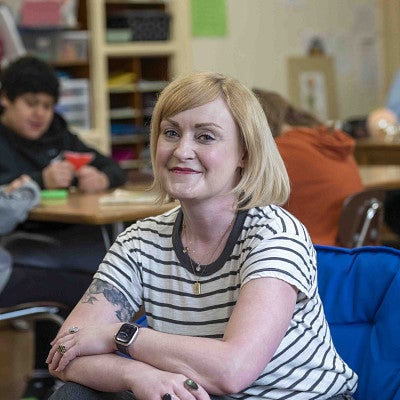
Graduate Microcredential in Child Behavioral Health
The graduate microcredential in child behavioral health is designed to support educators and other youth-serving professionals by equipping them with evidence-based behavioral health practices designed to promote child behavioral health and well-being. With relevant training in emotion regulation, trauma informed support, and fostering healthy relationships, these practices can be immediately integrated into classrooms or other settings.
The graduate microcredential is designed with working professionals in mind! Offered as a virtual, online course, students progress through the program as a cohort - allowing them to build relationships and develop a community of practice with other youth-serving professionals. Each course includes a field application component so professionals can bring research into practice within a supportive learning community!
Meet Our Faculty

"Research tells us that having at least one positive relationship with a trusting adult can serve as a protective factor. It was incredible to witness a tangible shift in passionate and empathic educators as they learned theories relevant to developing and maintaining healthy relationships. This course follows the developmental trajectory of relationships across contexts, from infancy through secondary education. We supported the integration of theory from previous courses as educators acquired tangible skills to enhance cultivating and maintaining healthy and collaborative relationships with their students, families, and colleagues."
— Miriam White-Pedeaux, Clinical Assistant Professor, Child Behavioral Health




